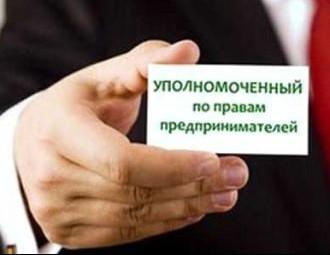Uladzimir Kariagin: Belarus should get an ombudsman post

Protection of entrepreneurial rights remains an urgent question for our country. What do we need for that? Laws, structures and people.
“How Can entrepreneurial rights actually be protected? We need decent laws, good structures, people who are prepared to protect entrepreneurs not only by creating economic infrastructure for their support, but also people who are ready and are skilled to protect the rights of the entrepreneurs legally. It has been a year since lawyers-entrepreneurs are deprived of the right to protect the interests of the entrepreneurs in courts. And the number of such lawyers, isolated from the possibility to represent their clients in courts is more than 3000. The sphere of fully fledged protection is rather limited”, - announced Uladzimir Kariagin, the chairperson of the Republican Confederation of Entrepreneurship in the talk with the EuroBelarus Information Service. – This problem has already been thought over by our colleagues in Russia, Kazakhstan and the EU. This is why the world has an existing practice of ombudsman-institute. We wrote about it in the Belarus National Business Platform (BNBP) as far back as five years. Today courts don’t want to go beyond their law of actions; we don’t have the right to appeal to the Constitutional Court on the subject of this or that legal act or to appeal against this or that judgment. It means that courts don’t have qualification to try cases connected with entrepreneurship. The whole class, which consists of about 350.000 entrepreneurs, is vulnerable. One of the models interesting for us is a Russian special institute for protection of entrepreneurs’ rights created in 2012 in Russia”.
What appeals most in the Russian practice is that “this structure was created by the government, while the candidature for the ombudsman’s position was put forward by the entrepreneurs. The ombudsman has a legal status with a right to go to the law omitting all formal procedures. He also has a right to visit places of detention without special permit”.
Uladzimir Kariagin is sure that the absence of similar institution in Belarus will negatively affect economic situation in the country: “Is there a necessity to have such institute in Belarus? I believe there is. Sharing one economic space with Russia, we should adopt Russian practice. If the rights of Belarusan entrepreneurs will get more poor protection than those of Russian entrepreneurs, it will be a sign indicating the noncompetitive nature of our business as well as the sign of negative investment climate. At the same time we want the court system and entrepreneurial councils at all levels to increase their responsibility. We should give the right for defence in courts back to the lawyers-entrepreneurs. We are involved in forming arbitral courts; however, for now none of the cases went to such court”.
What concerns possible candidatures for this position, Kariagin doesn’t want to voice their names now.
“I think that there are some persons who are ready for this position. It goes without saying that it should be educated energetic people well aware of the problems with the entrepreneurship. It isn’t obligatory that they are from business sphere – such people can be found in the state structures as well”.
Uladzimir Kariagin advices to remember that “an entrepreneur is, first of all, a human; thus, entrepreneurial rights are part of the human rights”.
-
03.01
-
07.10
-
22.09
-
17.08
-
12.08
-
30.09










































